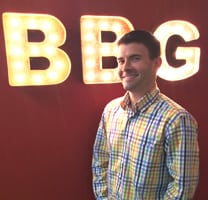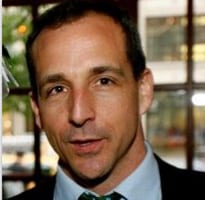
We’ve probably all been faced with this very promising but troublesome scenario: Your agency has the opportunity to sign a great new client with a product or idea that is potentially disruptive. With their unique technology, fresh approach and team of pioneering thinkers, the prospective client is ushering in a new era in their field. The only problem is, they are a small startup operation, meaning they are big on ideas and short on cash.

So, how can you decide if it’s a worthwhile investment for your agency? And if so, how do you help a startup go from obscurity to national awareness while staying within their limited budget?
First, agencies should realize that taking on a startup client probably won’t be a profitable endeavor ... at least, in the beginning. Even if the company you’re considering representing is heavily funded by venture capitalists (VCs), chances are that money is earmarked for something else — most likely research and development.
Before agreeing to represent a startup, we’ve found it beneficial to know how much the prospective client can afford to spend and what they’re hoping to accomplish through public relations initiatives. If you believe their expectations are reasonable, it might be a worthwhile bet and could prove to be a lucrative client over time. If it would cause you to underservice other more profitable accounts, it will not be a good fit. In short, like any investment you must assess a prospective client’s likelihood of success and timeframe to succeed against opportunity cost.

About a year and half ago, our agency was approached by the CEO of a startup developing power delivery systems that will enable the modernization of the electrical grid. He was looking for PR support and wanted to gauge our interest in partnering with him to achieve three primary goals: attract investment, hire top-notch talent within his industry and boost his company’s brand recognition and market awareness.
After conducting research and meeting with him a few times to discuss his objectives, we decided to take his company on as a client, even though the monthly fee would be much lower than usual. That’s because we were confident that this was a small client that we could help grow into a much larger one (and we still feel that way today).
Our first goal was a lofty yet achievable one: help the company gain national recognition in less than 30 days. Luckily for us, the client had just been named as one of 18 companies and 7 universities included in a $140 million White House–backed initiative to develop the next generation of semiconductor technology. Rather than send out blanket press releases with the same pitch, we decided to tailor each one to specific journalists, their beat and their audience. The results ranged from standalone features about the company in regional newspapers (with one headline reading “Obama pins hopes on Cree, John Deere, and this 10-person Raleigh startup”) to mentions in numerous national publications, despite the fact that the company was the smallest of the 18 involved in the consortium.
Less than a month later, the client was planning on attending one of the premier conferences for his industry, meaning all the major players (and therefore the important journalists) would be on hand. We seized the opportunity for maximum exposure by coordinating a series of 1-on-1 interviews with select reporters, capitalizing on the rare instance where they were all in the same place at the same time. Again, our client received significant coverage, with one influential trade publication dubbing them ‘a new contender in power electronics’ in an article that highlighted the company’s revolutionary product and its newly announced pilot program with a leading utility.
30 days earlier, a Google search of the client company’s name would have returned a single result — their own website. Yet, through our strategic approach, their SEO ranking was significantly higher thanks to a few positive articles placed in the right publications to garner attention.
Today, the client’s business model has evolved and their PR goals have changed. That’s another key component of representing a startup. Always be willing and prepared to adjust your strategy and tactics quickly. This particular client is no longer focused on utilities only, but in all situations where power delivery and management are needed.
To emphasize the versatility of their product, we work with this client to promote each federal grant the company has received. The amount of the grant is not what’s important, it’s that such well-known entities as the U.S. Department of Energy, NASA and the U.S. Army have validated their technology. This has proven to help attract potential investors and give comfort to current investors that the company has been vetted and is a good bet. When you’re working with startups, one goal that never changes is ensuring access to reliable sources of capital.
We also make a point to share information about all significant new hires, especially when the employee is coming from a more established or larger company within the industry. You may not think a one-line mention is important, but anytime David can steal away a key player from Team Goliath, it helps with overall perception that the company is growing and is another method of communicating that the company has been validated by knowledgeable industry insiders.
Ultimately, when working with a startup, you often have to go back to the basics. The client wants exposure, and you have to find ways to help them get it. One advantage is that you have direct access to decision makers. With larger clients, you’re often working through their internal corporate communications staff, but with a startup, you not only have the CEO’s cell phone number, chances are you are also in close personal contact. What is refreshing is that when you have meetings, the discussions rarely are limited to just PR initiatives but also encompass rapidly evolving business strategy and tactics.
In the life of an early stage company, every day is material and by extension so is every press mention. That is what makes this type of client work a lot of fun and incredibly rewarding.
David Hamilton is the Director of Earned Media and Locke Raper is the Executive Director of Marketing at Burkhead Brand Group (BBG). Prior to joining BBG, David was a television reporter and host for several national networks and regional affiliates. Previously, Locke held business development and marketing roles at several international media companies. Follow Burkhead Brand Group: @BBGIntegrated
